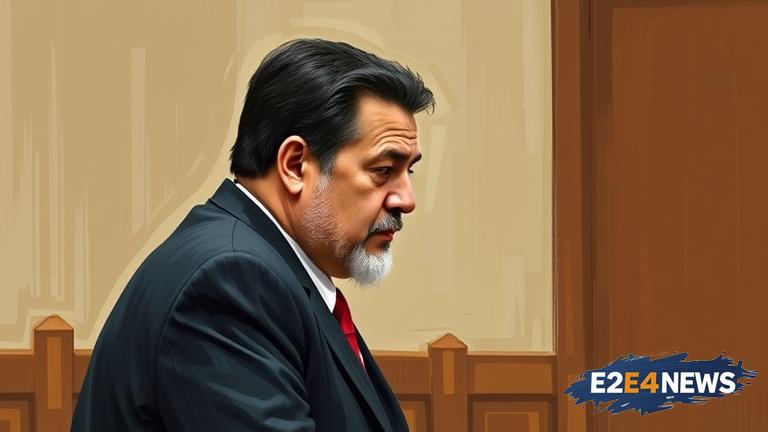Ismael ‘El Mayo’ Zambada, one of Mexico’s most elusive and notorious drug lords, has pleaded guilty to drug trafficking charges in a US court. The 75-year-old leader of the Sinaloa cartel, one of the most powerful and feared cartels in Mexico, appeared in a federal court in Brooklyn, New York, where he entered his guilty plea. Zambada’s plea marks a significant milestone in the fight against organized crime, as he has been a major player in the global narcotics trade for decades. The Sinaloa cartel, which Zambada co-founded with Joaquín ‘El Chapo’ Guzmán, has been responsible for the smuggling of vast quantities of cocaine, heroin, and other illicit substances into the United States. Zambada’s guilty plea is the result of a long and complex investigation by US law enforcement agencies, including the DEA and the FBI. The investigation, which spanned several years, involved the use of undercover agents, wiretaps, and other surveillance techniques to gather evidence against Zambada and his associates. Zambada’s plea agreement includes a cooperation provision, which requires him to provide information to US authorities about the inner workings of the Sinaloa cartel and other organized crime groups. This cooperation is expected to be a major blow to the cartel, as Zambada’s knowledge and expertise will likely be used to dismantle the organization and bring other high-ranking members to justice. The guilty plea is also seen as a major victory for the US government, which has been working to disrupt and dismantle the Sinaloa cartel for years. The cartel has been responsible for countless acts of violence and corruption in Mexico, including the murder of thousands of people, the bribery of government officials, and the intimidation of journalists and other civilians. Zambada’s plea is also a significant development in the ongoing effort to combat organized crime in Mexico, where the Sinaloa cartel has been a major player for decades. The Mexican government has been working to dismantle the cartel, but the organization’s reach and influence have made it a difficult target. Zambada’s guilty plea is expected to have significant implications for the cartel’s operations, as his cooperation will likely lead to the arrest and prosecution of other high-ranking members. The plea is also expected to have a major impact on the global narcotics trade, as the Sinaloa cartel has been a major supplier of illicit substances to the United States and other countries. The US government has been working to disrupt the cartel’s supply chains and distribution networks, and Zambada’s cooperation will likely be a major asset in this effort. In addition to his guilty plea, Zambada has also agreed to forfeit millions of dollars in assets, including properties, vehicles, and other valuables. The forfeiture is part of a larger effort by the US government to seize the assets of organized crime groups and use them to fund law enforcement efforts and support victims of crime. Zambada’s case is a significant example of the US government’s commitment to combating organized crime and disrupting the global narcotics trade. The guilty plea is also a testament to the dedication and hard work of law enforcement agencies, including the DEA and the FBI, which have been working tirelessly to bring Zambada and other high-ranking members of the Sinaloa cartel to justice. The case is expected to have significant implications for the future of organized crime in Mexico and the United States, as Zambada’s cooperation will likely lead to the dismantling of the Sinaloa cartel and the disruption of other organized crime groups. The US government will continue to work to combat organized crime and disrupt the global narcotics trade, using all available tools and resources to bring perpetrators to justice and support victims of crime. The guilty plea is a major milestone in this effort, and it is expected to have a lasting impact on the fight against organized crime. Zambada’s cooperation will likely be used to bring other high-ranking members of the Sinaloa cartel to justice, and to disrupt the organization’s operations and supply chains. The case is a significant example of the US government’s commitment to combating organized crime, and it is expected to have a major impact on the future of the global narcotics trade.
